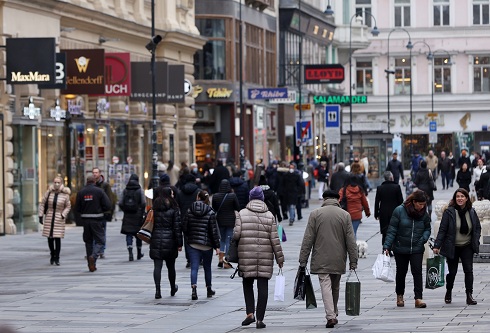|
Austria unveils €2 billion relief package to fight rising cost of living
|
There will be changes to the commuter allowance and increasing public transport investments, but the package has also been criticized.
|
 |
This is the second relief package announced in less than 30 days by Austrian authorities.
The country's National Council approved late last month one-off payments to ease the current cost of living crisis for specific households in the country.
Almost every Austrian who earns no more than €5,670 per month will receive a voucher for €150 euros to cushion the increased energy bill. Low-income people should get €300 after the €1.7 billion expense was approved.This is the second relief package announced in less than 30 days by Austrian authorities.
The country's National Council approved late last month one-off payments to ease the current cost of living crisis for specific households in the country.
Almost every Austrian who earns no more than €5,670 per month will receive a voucher for €150 euros to cushion the increased energy bill. Low-income people should get €300 after the €1.7 billion expense was approved.ncreases in Austria and Europe in general, governments scramble to halt inflation and galloping energy prices. Austria this weekend unveiled a package with some €2 billion promised as a relief for citizens.
The primary measure is a reduction in taxes on natural gas and electricity by the end of June 2023, which is expected to cost €900 million and should cut tax by 90 per cent.
Additionally, there will be a 50 per cent increase in the commuter allowance and an increase in the "commuter euro", which reduces income tax levies by €2 per kilometre distance between the place of residence and workplace. These should cost €400 million.
The package includes a €150 million investment in public transport to increase offers and lower prices. However, the government hasn't given any specific details on these proposals.
Some €120 million will be spent in helping self-employed, small and medium-sized companies with high fuel costs switch to more sustainable energy sources. Finally, a further €250 million is set to be invested in wind and solar power generation. |
| |
|
|